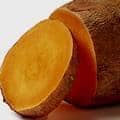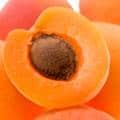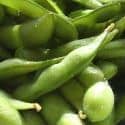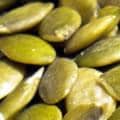List of Energy Boosting Foods
1Oatmeal


Oatmeal is one of the best sources of slow-releasing energy from low GI complex carbohydrates, to keep you going all morning. Also a great source of B-vitamins, which are needed to convert food into energy.
Nutrition Facts for Cooked Oatmeal.
Nutrition Facts for Cooked Oatmeal.
2Spinach


Spinach is high in iron, magnesium, and potassium. Iron transports oxygen around the body, needed for energy production. Magnesium plays a vital role in energy production, and together with potassium, is important for nerve and muscle function.
Nutrition Facts for Spinach.
Nutrition Facts for Spinach.
3Sweet Potatoes


Sweet potatoes are a fantastic source of complex carbohydrates, along with iron, magnesium, and vitamin C. Vitamin C is needed for transporting fats into the cells of the body for energy production.
Nutrition Facts for Baked Sweet Potatoes.
Nutrition Facts for Baked Sweet Potatoes.
4Eggs


Eggs are a complete protein, (containing all the essential amino acids), B-vitamins, healthy fats, and some vitamin D. They also provide choline, the precursor for the neurotransmitter acetylcholine, which activates skeletal muscle.
Nutrition Facts for Hard Boiled Eggs.
Nutrition Facts for Hard Boiled Eggs.
5Fruit


Fruits provide natural sugars, which are quickly absorbed into the bloodstream for an instant pick me up (but without the ‘sugar crash’ you get after eating refined sugars). Fruits are also high in fiber, vitamins, and antioxidants.
Nutrition Facts for Apricots.
Nutrition Facts for Apricots.
6Green Tea


Green tea contains some caffeine for an energy boost, but without the ‘jittery’ side effects of stronger caffeine drinks, such as coffee. Furthermore, green tea may also help lower cholesterol.
Nutrition Facts for Green Tea.
Nutrition Facts for Green Tea.
7Nuts


Nuts are energy dense due to their high content of healthy fats. They are also high in vitamins and minerals. Soaking nuts in water overnight ‘activates’ them (starts the germination or sprouting process) increasing the nutrient value even more and making them easier to digest.
Nutrition Facts for Almonds.
Nutrition Facts for Almonds.
8Soybeans


Soybeans are high in protein, B-vitamins, copper, and phosphorous. Copper and phosphorous are involved in converting food into energy and releasing it into cells so it’s available for use by the body.
Nutrition Facts for Edamame.
Nutrition Facts for Edamame.
9Fish


Fish such as salmon, sardines and mackerel are an excellent source of complete protein, B vitamins, essential fats, and vitamin D. A lack of vitamin D can cause low energy, muscle fatigue, and low mood.
Nutrition Facts for Wild Atlantic Salmon (Cooked).
Nutrition Facts for Wild Atlantic Salmon (Cooked).
10Seeds (Squash and Pumpkin Seeds)


Seeds are an excellent source of protein, healthy fats and minerals involved in energy production – including manganese, magnesium, phosphorus and zinc. Zinc is needed for the production of hormones in the body that affect energy and mood. It is also important for muscle recovery after exercise.
Nutrition Facts for Roasted Squash And Pumpkin Seeds (Unsalted).
Nutrition Facts for Roasted Squash And Pumpkin Seeds (Unsalted).
11Natural Yogurt


Yogurt contains live bacteria with many health benefits including regulating the immune system, improving digestion (so that more energy-giving nutrients are absorbed) and possibly even improving mood.
Nutrition Facts for Plain Yogurt.
Nutrition Facts for Plain Yogurt.
12Water


Dehydration is one of the fastest ways to feel your physical and mental energy levels drop. Even mild dehydration of 1-2% can affect mood, energy levels, and ability to concentrate. Drink 8 glasses per day to keep your energy levels up.
Nutrition Facts for Tap Water.
Nutrition Facts for Tap Water.
Source: MY FOOD DATA


